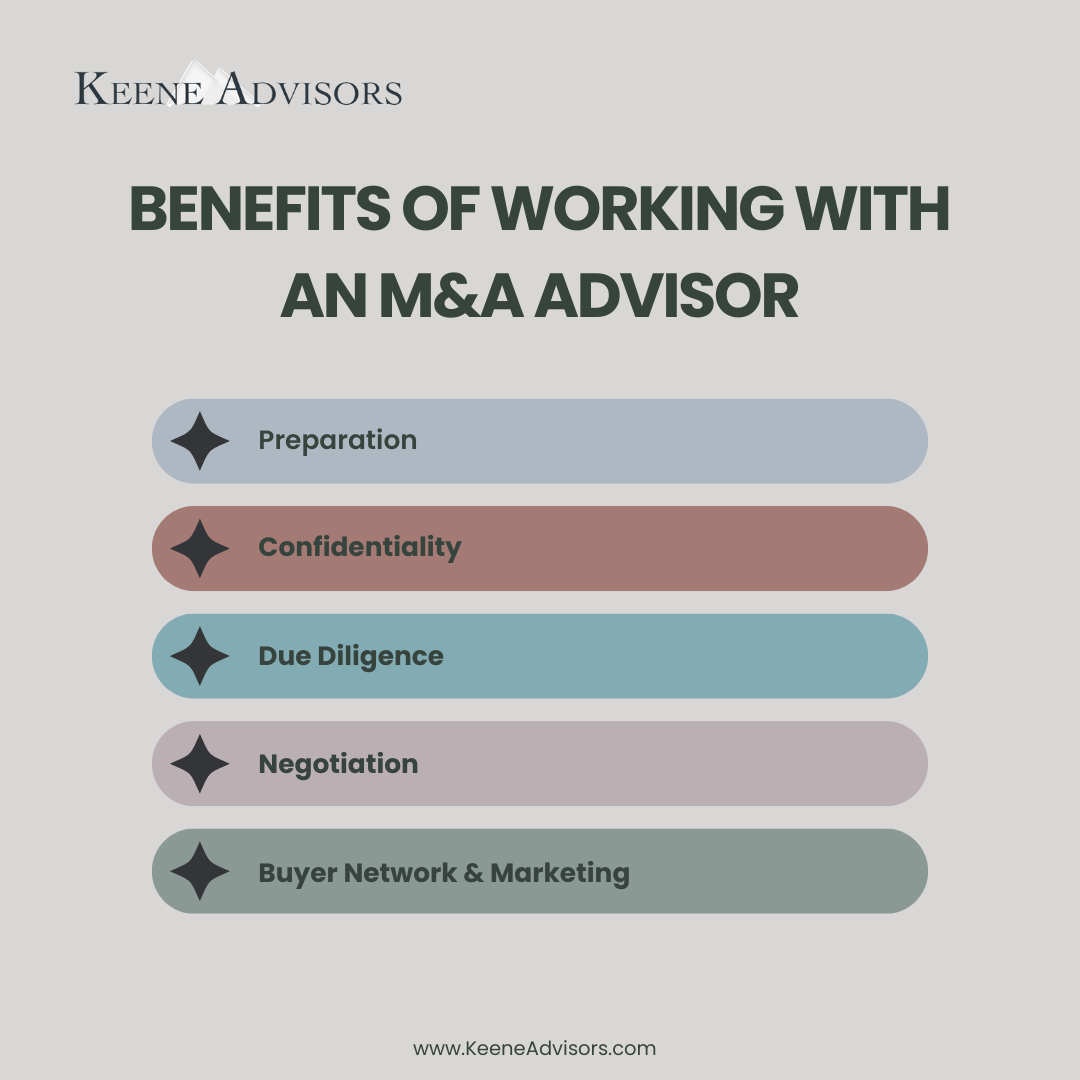Assembling the Right M&A Deal Team: Key Advisors That Drive Results
Key Takeaways:
The M&A Deal Team Supports Your Goals: An M&A deal team comprises specialists across multiple disciplines responsible for managing the transaction.
Main Members of the Team: An M&A advisor (investment banker), lawyer and tax specialist are three critical roles for a successful deal.
Do Your Due Diligence: Selling a business is one of the most important transactions in a business owner’s life, so choosing your M&A advisors should be a strategic process. Interview and ask questions and don’t settle for “good enough.”
M&A Advisory, Legal, and Tax Planning: Your M&A Deal Team
Successfully navigating an M&A transaction is a complex undertaking that requires expertise from multiple disciplines. A well-assembled deal team, including M&A advisors, legal counsel, and tax specialists, is key to driving value and ensuring a seamless process. These professionals provide critical guidance at every stage—from due diligence and structuring to negotiation and closing—helping to identify risks, enhance deal terms, and maximize financial outcomes. The right advisors don’t just facilitate the transaction; they help safeguard against costly missteps, making their expertise an essential investment in a successful deal.
The Role of M&A Advisors
M&A Advisors are essential roles. Their primary function is to guide clients—whether on the buy-side or sell-side—through the complexities of mergers, acquisitions, divestitures, and joint ventures. Advisors usually work at an M&A advisory firm, boutique investment bank, or conglomerate financial services firm.
Here are some of the ways M&A advisors are crucial to a successful transaction:
For business owners looking to get acquired, advisors manage and coordinate the sale process—from establishing valuation expectations, to identifying and reaching out to prospective buyers, managing negotiations, and deal execution.
They position the business to maximize valuation through multiple methods, including helping to , creating a competitive sale process, etc.
Leverage their network of strategic partners and potential buyers and manage the outreach, company presentation, and buyer due diligence process.
Benefits of Working with an M&A Advisor
M&A advisors bring specialized expertise and industry experience, making them essential for businesses with $10 million+ in revenue. Key benefits of working with an M&A advisor include:
Preparation: Preparing to sell your business is a time-intensive process. An M&A advisor will do the heavy lifting of preparing a detailed corporate analysis to present to potential buyers and organize and consolidate your financial information.
Confidentiality: Helps keep the sale process discreet, which allows for competitive positioning and protects employee retention.
Due Diligence: Manages the complex due diligence process and works with legal counsel to establish proper legal and financial structures.
Negotiation: Expertly negotiates deal terms to maximize value and achieve your goals.
Buyer Network & Marketing: Leverages industry connections and marketing strategies to create competitive tension, which benefits the seller.
Top Questions to Ask When Interviewing Potential M&A Advisors
Given the importance of the M&A advisor role, you should choose carefully. Interview multiple candidates and consider their overall and industry experience. There are often benefits to choosing a generalist investment banker over an industry specialist, which you should also consider in your decision. Below are sample questions you may consider asking potential advisors:
What experience do you have selling businesses of similar size and scope to mine?
Who would be my main point-of-contact? Who would be leading this transaction?
Please provide detail on deals you have closed in the past.
Do you have contacts among potential buyers? Are they strategic or financial buyers?
What is the process for selling a business like ours?
How would you market my company to potential buyers?
What is your compensation structure? What fees are involved, and what will they cover?
How will your team keep us informed throughout the process?
Why M&A Lawyers are Critical to Success
Legal advisors are central figures in almost any financial transaction. Often, their expertise spans multiple disciplines, including corporate law, contracts, securities regulations, and federal regulations (anti-trust, CFIUS, etc.). Federal and state laws and regulations around financial transactions are complex, and you will likely need legal support to navigate the deal successfully.
The Role of M&A Attorneys in Structuring the Deal
M&A attorneys are vital in structuring deals to minimize risks and maximize value. Some of their key responsibilities include:
Assist in drafting, reviewing, and negotiating key agreements, such as letters of intent, term sheets, and principal transaction documents.
Conducting legal due diligence
Ensuring regulatory compliance
Some M&A attorneys manage specialist attorneys in various legal areas—such as antitrust, employment, intellectual property, and real estate—to ensure that all aspects of the transaction are appropriately addressed.
M&A lawyers help drive transactions to a successful close through their oversight of the legal strategy.
M&A Tax Planning Can Optimize Your Final Proceeds
Engaging an experienced M&A tax advisor early in the deal process is crucial for identifying potential tax liabilities and benefits that could affect your final proceeds. Nobody wants to close a favorable deal only to learn they have a large, unintended tax liability. Collaborating with M&A tax specialists who are well-versed in the entire deal lifecycle can streamline processes, reduce inefficiencies, and promptly resolve tax-related challenges. Additionally, their analysis helps form the basis for the deal structure, working alongside advisors and attorneys to ensure the deal is favorable while adhering to all regulations.
Tax Implications of Different Deal Structures
The structure of an M&A transaction—asset sale vs. stock sale—has significant tax implications for buyers and sellers.
In an asset sale, the buyer can generally step up the basis of acquired assets, leading to potential depreciation and amortization benefits. However, sellers may face higher taxes.
In contrast, a stock sale is often more straightforward from a tax and administrative perspective, as the buyer acquires ownership of the entire company, including liabilities. While this structure may be more favorable for sellers due to capital gains treatment, buyers may not receive the same tax benefits since asset values remain unchanged.
Other considerations to minimize tax burdens and maximize net proceeds include valuation, financing the deal, and how earnouts and contingency payments are handled.
Maintaining Competitive Tension in an M&A Sale Process
Creating and sustaining competitive tension among buyers is the best way to maximizing value. By engaging multiple interested parties, you maintain momentum throughout the process and increase your company’s negotiating leverage, which can result in more favorable deal terms. A disciplined sale strategy that’s supported by timely communication and effective negotiation ensures that buyers remain engaged.
A good M&A advisor will strike a balance between maintaining confidentiality and transparency among interested parties and keeps potential buyers moving at a similar cadence through the diligence process. This helps sustain buyer interest and keep the process moving forward. Orchestrating this dynamic successfully helps ensure that your company extracts the highest possible value while preserving your optionality among potential buyers until the deal is finalized.
Are You Ready to Assemble Your M&A Deal Team?
Once you’ve clearly defined your motivations for selling your business, the next step is assembling the right M&A advisors as outlined above. Experienced advisors drive value, mitigate risk, and ensure a smooth transaction. Their expertise can negotiate more favorable deal terms that maximizes your sale price, advise company owners on how to avoid potential pitfalls, and proactively address challenges that arise throughout the process.
Keene Advisors is a Full-Service Investment Banking Advisory firm with over $40 billion in successful mergers and acquisitions, capital raising, and restructuring advisory transactions. We are dedicated to transparent communication and seamless guidance throughout every stage of the M&A process, always aiming to align short-term needs with long-term goals.
Contact us today with your inquiries and to learn more about how we can help you achieve a successful sale.



